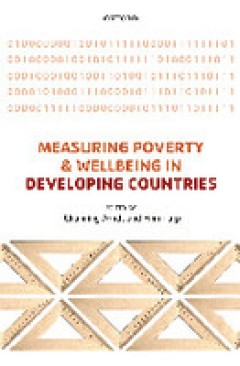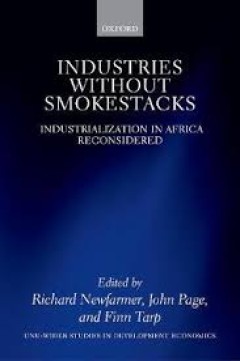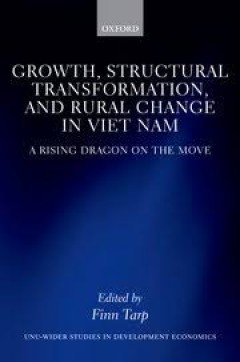Filter by

Inequality in the developing world
Inequality has emerged as a key development challenge. It holds implications for economic growth and redistribution and translates into power asymmetries that can endanger human rights, create conflict, and embed social exclusion and chronic poverty. For these reasons, it underpins intense public and academic debates and has become a dominant policy concern within many countries and in all mult…
- Edition
- Ed. 1
- ISBN/ISSN
- 9780198863960
- Collation
- xx, 352 p. : ill.
- Series Title
- -
- Call Number
- 330.91724 TAR i

Measuring poverty and wellbeing in developing countries
Detailed analyses of poverty and wellbeing in developing countries, based on household surveys, have been ongoing for more than three decades. The large majority of developing countries now regularly conduct a variety of household surveys, and their information base with respect to poverty and wellbeing has improved dramatically. Nevertheless, appropriate measurement of poverty remains complex …
- Edition
- First edition.
- ISBN/ISSN
- 9780198744801
- Collation
- xxiv, 347 pages : ill, maps ; 24 cm.
- Series Title
- UNU-WIDER studies in development economics
- Call Number
- 362.5091724 MEA m

Industries without smokestacks: industrialization in Africa reconsidered
Structural transformation in Africa has become a hot topic. One of the earliest stylized facts of development economics is that low-income countries have large differences in output per worker across sectors, and movement of workers from low- to high-productivity sectors—structural transformation is a key driver of economic growth. Between 1950 and 2006, about half of the catch-up by developi…
- Edition
- -
- ISBN/ISSN
- 9780198821885
- Collation
- -
- Series Title
- -
- Call Number
- 338.9 IND i

Growth, structural transformation, and rural change in Viet Nam: a rising dra…
Many developing countries—Viet Nam included—continue to struggle to raise incomes per capita. A common feature of the growth and development process is a fundamental change in the pattern of economic activity, as households reallocate labour from traditional agriculture to more productive forms of agriculture and modern industrial and service sectors. Broad structural transformation and wid…
- Edition
- First edition.
- ISBN/ISSN
- 9780198796961
- Collation
- xxviii, 304 pages : illustrations ; 24 cm.
- Series Title
- Studies in development economics
- Call Number
- 330 TAR g
 Computer Science, Information & General Works
Computer Science, Information & General Works  Philosophy & Psychology
Philosophy & Psychology  Religion
Religion  Social Sciences
Social Sciences  Language
Language  Pure Science
Pure Science  Applied Sciences
Applied Sciences  Art & Recreation
Art & Recreation  Literature
Literature  History & Geography
History & Geography